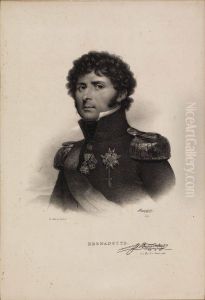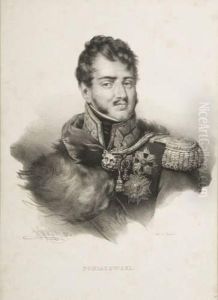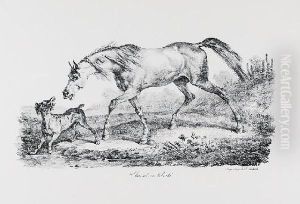Francois Delpech Paintings
François Séraphin Delpech was a French lithographer and printmaker born in 1778. He was an important figure in the early development of the lithographic process in France and is known for his portraits and caricatures. Delpech was a contemporary of the inventor of lithography, Alois Senefelder, and played a significant role in popularizing this new printing technique in the early 19th century.
Delpech began his career as a printmaker and lithographer at a time when the art of lithography was still in its infancy. He was particularly adept at creating lithographic portraits, which captured the likeness and personalities of his subjects with a high degree of skill and sensitivity. His work included portraits of famous individuals of his time, such as artists, writers, and politicians, making him a sought-after portraitist.
In addition to his portraits, Delpech was also known for his caricatures, which were often humorous and satirical depictions of contemporary French society and politics. These works were popular among the French public and contributed to his reputation as an accomplished lithographer.
Delpech's contribution to the field of lithography was not limited to his artistic output. He also ran a successful lithographic printing studio in Paris, which became a center for the production of high-quality lithographic prints. His studio attracted many artists and students who were eager to learn the new technique, and it played a pivotal role in disseminating lithography throughout France.
Unfortunately, François Delpech's life was cut short when he died in 1825. Despite his relatively brief career, his impact on the field of lithography was significant. He helped to establish lithography as a respected artistic medium and paved the way for future generations of printmakers and artists. Delpech's work remains a valuable part of the history of printmaking and continues to be studied and admired by art historians and enthusiasts alike.


